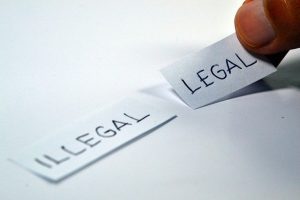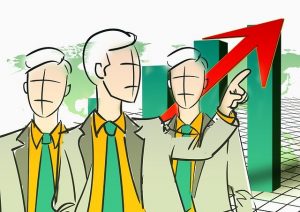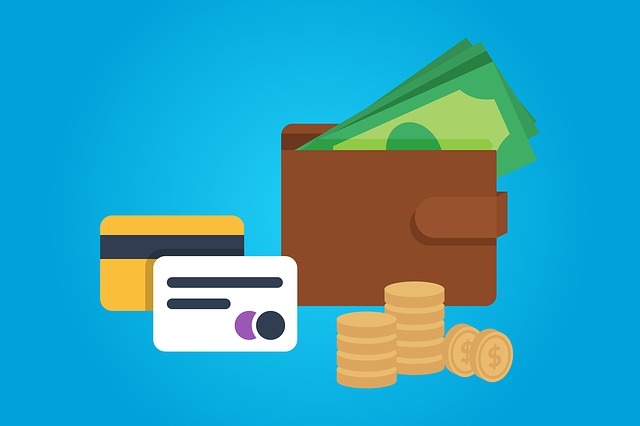
Lehman Brothers. Washington Mutual. Bear Stearns. A decade following the fiscal disaster, the casualties of this financial near-collapse are fading out of memory. But this period of chaos permanently changed the U.S. economy and the monetary system.
Listed below are 10 common questions about the catastrophe as well as its durable impact:
What has been the short-term effect of the fiscal crisis on the market?
The catastrophe has been that the worst U.S. economic meltdown as the Great Depression. In the USA, the stock exchange dropped, wiping out almost $8 billion in value between late 2007 and 2009. Unemployment increased, peaking at 10% in October 2009. Americans dropped $9.8 trillion in prosperity as their dwelling values plummeted as well as their retirement accounts receivable.
In all, the fantastic Recession resulted in a reduction of over $2 billion in worldwide economic expansion, or a fall of almost 4%, involving the pre-recession summit in the next quarter of 2008 and also the minimal reach from the first quarter of 2009, based on Moody’s Analytics.
“It had been a shock to the financial system it unleashed dynamics which we don’t understand entirely,” explained Joe Brusuelas, chief economist in RSM, an audit and advisory company.
What’s become the long-term influence on the market?
The U.S. market has mostly recovered. In late August the U.S. inventory exchange established a record for its longest-running upswing in its own foundation, arming the retirement account of employees who remained running through bouts of volatility. Home prices also have rebounded, compelling overall housing wealth to high the amounts seen from the pre-recession summit. Unemployment is very low, at 3.9% in July.
“It is reasonable to say that the crisis was a financial calamity for homeowners anywhere, but almost everyone has regained what they dropped because of recession,” said Mark Zandi, chief economist at Moody’s Analytics.
Nonetheless, the restoration hasn’t buoyed all customers alike. Many employees have fought to land occupations that paid in addition to the places they had prior to the downturn. That change, together with the time spent from work as well as also other drops in productivity because of the catastrophe, has resulted in a reduction of roughly $70,000 in lifetime income for each and every American, according to a quote in the Federal Reserve Bank of San Francisco. In the conclusion of 2017, 4.4 million homeowners had been submerged in their mortgage, which they owed over their houses were worth, as stated by the property business Zillow.
What happened to Fannie Mae and Freddie Mac?
In 2008the authorities seized control of the distressed mortgage giants since the home market unraveled along with the firms’ losses piled up. Taxpayers pumped billions to the businesses, but within the last couple of decades Fannie Mae and Freddie Mac, which buy mortgages from lenders and package them into securities to market to investors, have now already been spewing gains which feed to government coffers. Fannie Mae, by way of instance, took $119.8 billion in taxpayer bailout cash but has given $167.3 billion into the Treasury Department. The bigger Freddie Mac earned $71.6 billion in money and has turned around $112.4 billion in earnings.
The businesses remain under administration conservatorship, and there’s very not much certainty in Congress to handle the complex job of discovering their futures. Some suggestions have known for Fannie and Freddie to become privatized others to abolish all of them together. Further complicating the struggle: Many Wall Street investors state Fannie Mae and Freddie Mac’s earnings must be moving to investors rather than the authorities.
Meanwhile, Fannie and Freddie back roughly 60% of U.S. mortgages, also lawmakers seem reluctant to disturb the status quo, housing experts say.
“There’s a threat that in the event that you get it wrong, you’re going to do harm to a marketplace that’s vital to countless Americans,” said Michael Barr, also a University of Michigan Law School professor who served at the Treasury Department in 2009 and 2010.
How can the catastrophe change the home industry?
The home market had been ground zero of this catastrophe. The market collapsed as homeowners with subprime and other bothersome loans payable in record levels. Home prices fell, and countless lost their homes.
The market has mostly recovered, together with home prices increasing and much fewer folks behind in their mortgages. Regulators also have established new limitations on the sorts of loans banks can provide.
“Recall ninja loans? Regardless of income, no resources, no issue? We’ve come quite a distance,” Brusuelas explained.
However, the housing restoration has left low-income, low-credit-score economists, economists say. As opposed to risk making loans to all those buyers, banks have concentrated intensely on people that have immaculate credit and purchasing more-expensive houses, they state.
“There’s pressure building to alter this,” explained Aaron Terrazas, a senior economist in Zillow.
Are there “too large to fail” banks?
Yes. In reality, lots of the nation’s most important banks are larger now than they were prior to the fiscal crisis. JPMorgan Chase has $2.5 trillion in assets, compared to over $ 1.5 trillion in 2007. Bank of America has roughly $2.3 trillion in assets, compared to $1.7 trillion in 2007. The resources of Wells Fargo are around $ two billion, over twice what they had been correct before the catastrophe.
“When and if another catastrophe strikes, the largest players will likely be much bigger than they had been during the previous accident,” based on your 2017 S&P Global Market Intelligence report.
Some policymakers, such as Minneapolis Federal Reserve President Neel Kashkari, continue to involve a break of the large banks, but the thought hasn’t gained much traction. Lawmakers considered attempting to restrict how big banks while still studying legislation to overhaul the financial sector but finally rejected the notion. Rather, the 2010 financial-overhaul legislation, ” the Dodd-Frank Act, given regulators wide new powers to police the market, along with the largest banks experience the most extreme scrutiny.
“Fundamentally, too large to fail was resolved — taxpayers won’t cover if a financial institution fails,” Jamie Dimon, leader of JPMorgan, the biggest lender in the nation, composed in a 2017 letter to investors.
ALSO READ: Political Loans and Its Process
What happened to Lehman Brothers?
Most stage to Sept. 15, 2008 — that the afternoon Lehman Brothers, the country’s fourth-largest investment bank, filed for bankruptcy as a turning point in the catastrophe. After journeying into the rescue of several other important financial institutions, the national authorities drew on the line with Lehman, permitting the company to fall.
A decade after, a bankruptcy court is still wading through the wreckage. The bank trustee has offered tens of thousands of its resources and paid more than $130 billion to settle claims from it. However, 365 former Lehman Brothers workers are still habituated to recover millions in lost wages and bonuses, possibly keeping the situation in court for a long time to come.
“When we began ten decades back, we confronted the disorderly conditions of a worldwide liquidity crisis and needed to make instant decisions at the ‘Fog of Lehman,'” James W. Giddens, liquidation Duties for Lehman Brothers, said in a statement. “It was a massive quantity of work. We’re proud we could recover as many resources as possible for all those distributions within a very efficient and fair procedure.”
Did anybody go to prison for inducing the fiscal crisis?
No significant bank CEOs were charged with inducing the fiscal crisis. Federal prosecutors believed instances against several high-profile characters, such as Angelo Mozilo, the chief executive of mortgage giant Countrywide Financial, but finally did not pursue them. In 2013,” Attorney General Eric H. Holder Jr. explained some financial institutions were “so big” it created it”hard for individuals to prosecute them.”
Prosecutors could have had evidence that the high heeled executives were involved with criminal behavior to deliver a circumstance, said Jacob Frenkel, a former federal prosecutor and also a partner in the law firm Dickinson Wright. “A lot of those decisions in associations which gave rise to the fiscal crisis, and surely the plan of the competitive practices and tools which triggered the catastrophe, happened at rates well under the big-name executives,” he explained.
Dozens of executives in smaller banks are financed by the Office of the Special Inspector General for its Troubled Asset Relief Program, which has been launched to authorities firms that obtained bailout funds. But SIGTARP has voiced frustration with the problem of alerting executives in the very best companies.
To be certain, the banking sector failed to pay a hefty cost to the catastrophe — billions of fines. Bank of America, by way of instance, paid a whopping $17 billion to resolve allegations that it knowingly sold faulty mortgage securities which led to the fiscal crisis. JPMorgan Chase compensated $13 billion.
Why is Wall Street still yanking out large bonuses?
Sort of. Wall Street bonuses are nearing record highs. The normal bonus payout attained $184,220 final calendar year, a 17 percent growth compared with the preceding year, and also the nearest Wall Street has come in over a decade into its all-time high $191,360 from 2006, according to the New York state comptroller.
Wall Street’s critics contended that excess bonuses helping fuel the fiscal meltdown, and Congress tried to tackle the matter in Dodd-Frank, needing authorities to set new guidelines aimed at preventing executives by making risky monetary stakes to improve their cover and then amassing massive bonuses prior to the fallout remains apparent. However, the principles are years old and have yet to be finalized. Trump-era regulators aren’t predicted to drive the issue further.
“Ten years following the catastrophe, the origin — venal pay commissions — remain unaffected by Washington,” explained Bart Naylor, a financial-policy urge for the nonprofit consumer group Public Citizen.
Industry officials say that the rules were overly complex and unnecessary. Banks have already dealt with the issue, they say, noting most bonuses have been handed out over many decades instead of all simultaneously.
Did all of the firms bailed out by taxpayers pay the cashback?
Pretty much. Even the Treasury Department recovered $412 billion to banks, both carmakers and other fighting firms throughout the Troubled Asset Relief Program or TARP. At the end of this past year, it’d accumulated that which it was paid out from bailout capital and then a few, leaving the authorities with a gain of 12 billion.
Just about half of those banks and other businesses the Treasury Department spent in reimbursed in full, stated Christy Goldsmith Romero said head of SIGTARP. Some firms paid interest and dividends, which helped compensate for the program’s reductions some businesses, ” she explained. Taxpayers, by way of instance, dropped about $11 billion over the Bank of General Motors.
A couple of banks have not stopped paying the authorities back. However, they owe a total of less than $100 million, also a little section of the money given out. Additionally, TARP pushed out billions to assist distressed homeowners from paying banks to reduce their rates of interest and monthly payments. Big banks, such as Wells Fargo, are anticipated to keep on getting money through that application till 2023.
Is your monetary system safer than it ever was prior to the catastrophe?
Normally, economists concur that the fiscal system is more significantly even safer. The 2010 Dodd-Frank Act place new guardrails across the banking industry. The nation’s most important banks should now experience periodic “stress tests” to demonstrate that they could endure another catastrophe and draw “living wills” so they are dismantled in a crisis without needing a taxpayer bailout.
However, Congress and authorities have lately begun loosening a number of Dodd-Frank’s vital prerequisites, permitting small and midsize banks to escape a few of the very strict rules, such as. Critics warn that these attempts could make yet another catastrophe more likely.
“A lot of holes within our financial regulatory system have become plugged,” explained Aaron Klein, policy manager at the middle on Regulation and Trade in the Brookings Institution. “Can we be impervious to a different catastrophe? No. It is human nature. Cars are safer now than they were 30 decades back, but you are still able to get in a crash. You still might need auto accident settlements.”




 Login sbobet is one of the leading sports betting site and online casino in Indonesia. Apart from the numerous odds and exciting games it offers along with amazing graphics and user-friendly interface, it is also a safe environment to engage in betting. 24 hours a day 7 days a week friendly and reliable customer support is also available to ensure you have a positive and enjoyable overall gambling experience.
Login sbobet is one of the leading sports betting site and online casino in Indonesia. Apart from the numerous odds and exciting games it offers along with amazing graphics and user-friendly interface, it is also a safe environment to engage in betting. 24 hours a day 7 days a week friendly and reliable customer support is also available to ensure you have a positive and enjoyable overall gambling experience. Indeed, the online gambling market has boomed and ropes in millions of dollars in revenue. Because of this, governments who have legalized and regulated online gambling within their jurisdiction also benefit from this through tax revenue.
Indeed, the online gambling market has boomed and ropes in millions of dollars in revenue. Because of this, governments who have legalized and regulated online gambling within their jurisdiction also benefit from this through tax revenue. Generating Tax Revenue Through Legalized Gambling
Generating Tax Revenue Through Legalized Gambling

 Foreign Exchange (Forex) is a huge global market wherein both sellers and buyers from across the world participate in daily trades worth trillions. Since forex trading has become a worldwide activity, this means that events in the macroeconomic level everywhere have a greater part to play in foreign exchange more than ever before. Forex traders need not to stick to currencies that are popular, however they are an excellent place to begin trading.
Foreign Exchange (Forex) is a huge global market wherein both sellers and buyers from across the world participate in daily trades worth trillions. Since forex trading has become a worldwide activity, this means that events in the macroeconomic level everywhere have a greater part to play in foreign exchange more than ever before. Forex traders need not to stick to currencies that are popular, however they are an excellent place to begin trading. As forex brokers and traders, it is imperative to be knowledgeable and updated with varying economic events and trends so as to be efficient, effective and successful in the market. Forex brokers, most especially, need to be well-informed to be able to fruitfully help their clients who are new to the market.
As forex brokers and traders, it is imperative to be knowledgeable and updated with varying economic events and trends so as to be efficient, effective and successful in the market. Forex brokers, most especially, need to be well-informed to be able to fruitfully help their clients who are new to the market. Low And High Exchange Rates
Low And High Exchange Rates


 Although forex trading is possible without a broker, there is immense value in trading through forex brokerage accounts. For example, ForexTime (FXTM) is one of the fastest growing brokerage company in the forex market. In the fxtm broker review, they provide their clients with unique products and services for them to make the most of their trading.
Although forex trading is possible without a broker, there is immense value in trading through forex brokerage accounts. For example, ForexTime (FXTM) is one of the fastest growing brokerage company in the forex market. In the fxtm broker review, they provide their clients with unique products and services for them to make the most of their trading. Choosing A Forex Broker
Choosing A Forex Broker

